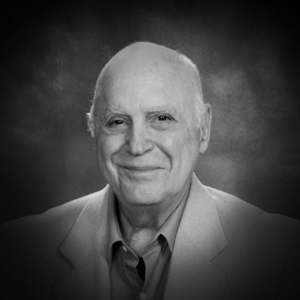Fatal flaws exist at the cores of American-style capitalism and socialism, even the oxymoronic democratic socialism. This post deals with socialism; a subsequent post will focus on capitalism.
Definitions
Many proponents of socialism tend to confuse the assumed benefits (e.g., free college expenses, free childcare, guaranteed income, free universal healthcare, equality of outcomes) with the definition of this economic and social theory. The use of the descriptor, “free,” tends to obscure the fact that these benefits are not free but, instead, are supported by high taxation of individuals and businesses.
A serviceable definition of socialism is: A political and economic theory advocating the means of production, distribution, and exchange should be owned or regulated by the community as a whole. In this definition, “the community as a whole” effectively refers to the government and its institutions. Socialists maintain capitalism is fundamentally irreconcilable with liberty, equality and solidarity; furthermore, only a socialist society can produce these ideals across the entire social order.
Democratic socialism, supported by many people today like Senator Bernie Sanders and newly elected Representative Alexandria Ocasio-Cortez, postulates that political democracy should exist alongside social ownership of the means of production with an emphasis on management of a planned economy. Presumably, inclusion of the term, “democratic,” means the government, charged with management of the economy and society, will be chosen through free and open elections.
Anti-Democratic
Woodrow Wilson, before he became president of the United States, clearly enunciated the anti-democratic nature of socialism, using the sometimes-tortuous language of his academic background: “Socialism proposes that all ideas of a limitation of public authority be put out of view, and that the State consider itself bound to stop only at what is unwise or futile in its universal superintendence alike of individual and public interests. The thesis of the state socialist is, that no line can be drawn between private and public affairs which the State may not cross at will.” That is, the all-powerful State can do as it pleases to ensure equality of outcomes.
Thus, we come to a major flaw in socialism: Even if instituted through free elections, a socialist government—acting on its foundational principles—can only, at its best—be benevolently autocratic, not democratic.
Top Down Management
“Scientific planning” constitutes a fundamental feature of socialism—the contention that expert technocrats can manage an economy better than spontaneous market forces. After all, would not experts know better than buyers and sellers what, how, and for whom to produce? “Technocrats” using the authority of the government in an attempt to manage the economy from “top down” precludes socialism from being democratic.
Could we rationally expect any group of technocrats, even with the benefit of the most advanced Artificial Intelligence systems and super computers, to manage the United States economy with its diversity and thousands of moving, interacting parts? Furthermore, would such a system even contemplate providing funds and personal to develop projects like the Internet, Facebook, Google, Uber, etc.? I think not.
Criminal Enterprises
Many critics of socialism often point to countries like Cuba, North Korea, and Venezuela as economic and social failures because of the socialistic natures of their governments. Accordingly, these countries provide pertinent examples of why socialism must be considered a flawed and failed economic system. This contention is probably correct; however, these countries are gigantic criminal enterprises that go far beyond theoretical socialism. Some people might argue that socialism, by its very nature, fosters criminality.
The Race Car or the Driver?
Some proponents of socialism advocate for the race car and driver analogy to explain away the failures of ostensible socialistic countries. In this analogy, the race car is the socialistic economy and the driver of the car is the person, or persons, managing the economy. The contention is that the car and driver are unsuccessful in winning races due to the faults of the driver, not deficiencies in the race car. Hence, winning races requires only that an excellent driver be put in the race car. The problem with this contention: The car under performs, not the driver alone. Why does the car underperform? Because of fundamental mechanical problems inherent in the design of the car.
Ignorance
Many persons point to Sweden as an illustration of successful democratic socialism. These proponents are either ignorant of the facts about Sweden’s current economy or willfully disregard these facts. In the 1970s and 1980s, Sweden did have a government and economy that, in some respects, resembled socialism. But, due to severe economic problems, Sweden abandoned socialism and now has a market-driven economy that may be more competitive than the United States. Sweden, even with its current high rate of taxation on the poor and middle classes, does not highly tax the rich—a primary postulate of democratic socialism—because the wealthy may leave the country and take their wealth with them. That is, wealthy individuals in socialistic countries may participate in their own version of Atlas Shrugged.
The Critical Flaw
The critical flaw in socialism relates to the absence of, or a minimal role for, incentives. Socialism, therefore, ignores an inextricable feature of human nature. In socialism with its emphasis on equality of outcomes, people will observe that no matter how hard some individuals may work compared to those who do not work as diligently, the outcomes are the same. Accordingly, high achievers will soon decrease their efforts and regress to the minimum required effort. As a result, socialist societies fail to promote and nurture their people, and deprive the human spirit of full development.
I can understand the allure of socialism for some people enmeshed in a competitive, free-market economy, especially in an economy without a level playing field that fosters equality of opportunity. Some people simply prefer not to, or fear to, compete and they object to the concept that, even with a level playing field, there presumptively will be winners and losers.
The temptation of socialism derives from the allure of give up a little of your freedom to the government and society and you will have a little more security. History clearly demonstrates this bargain never pays off.










